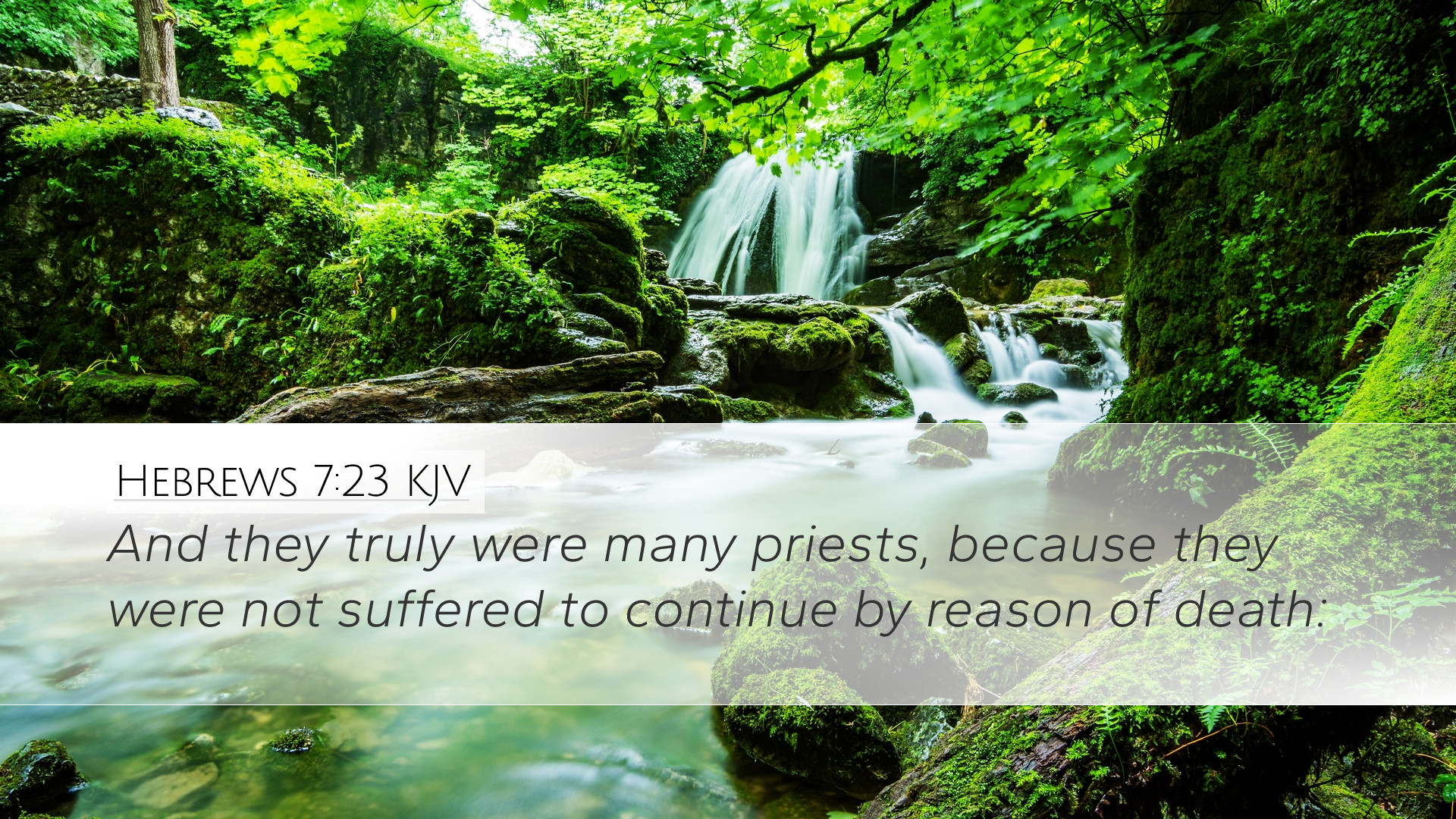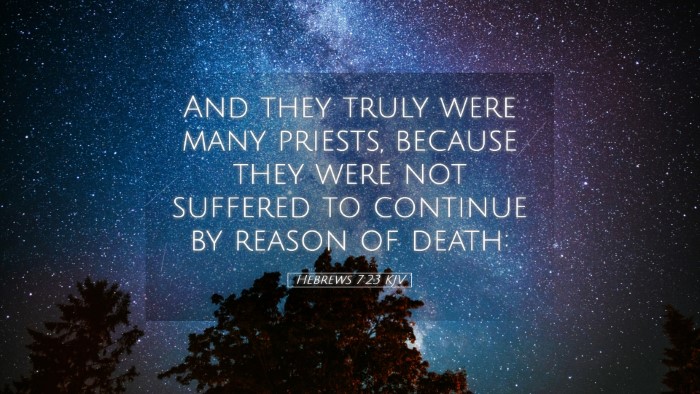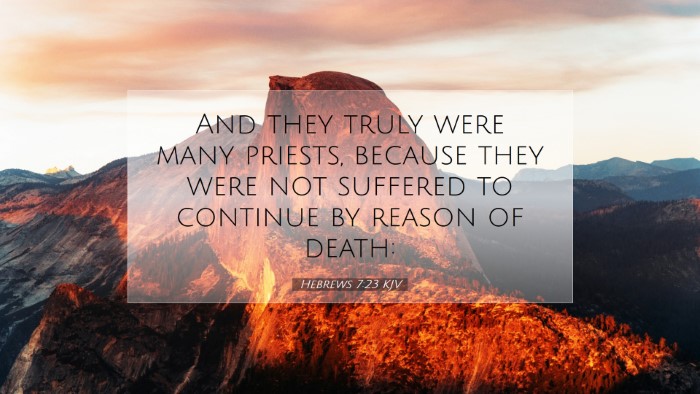Commentary on Hebrews 7:23
Hebrews 7:23: "And they truly were many priests, because they were not suffered to continue by reason of death."
Introduction
In this passage, the writer of Hebrews contrasts the Levitical priesthood with the priesthood of Christ. The multitude of priests under the Mosaic law serves as an illustration of the limitations and transience of human priesthood. This commentary will explore the significance of this verse by synthesizing insights from respected public domain commentators.
Analysis of the Verse
This verse emphasizes two main themes:
- The Multiplicity of Priests: The high number of Levitical priests highlights the inadequacy of their service.
- The Mortality of Priests: The phrase "not suffered to continue by reason of death" underscores the inevitable end of their priestly roles.
Insights from Matthew Henry
Matthew Henry notes that the many priests indicate a system bound by limitations. He elaborates that each priest was subject to death, necessitating the appointment of another in their place. This cycle of mortality emphasizes the frailty of human systems in approaching God. Henry poignantly remarks:
"The Levitical priesthood was not only numerous but also temporary, exhibiting the shadows and types of the ultimate Priest, Jesus Christ, whose priesthood is eternal."
This brings to light the futility of relying on a temporary priesthood for lasting reconciliation with God.
Insights from Albert Barnes
Albert Barnes expands on the implications of the priesthood’s transient nature. He posits that this multiplicity not only signifies human limitations but also points toward the perfection found in Christ's eternal priesthood. Barnes explains:
"The death of each priest necessitated a succession, which constantly interrupted the potential for perfect intercession. In contrast, Christ, as the eternal High Priest, is unchangeable."
This uninterrupted, eternal intercession is what provides believers with a sense of security and assurance before God.
Insights from Adam Clarke
Adam Clarke provides a theological framework for understanding the implications of mortality among priests. He comments that the continuous need for new priests reveals the insufficiency of the law to fully cleanse from sin. Clarke writes:
"The Levitical order pointed to the need for a greater High Priest who would not offer sacrifices repeatedly but would offer Himself once and for all."
Clarke reinforces the idea that Christ embodies the fulfillment of the priesthood, bringing forth a new covenant that transcends the old.
Theological Implications
The implications of Hebrews 7:23 reach far into both doctrinal and practical theology:
- Christ's Unique Qualification: Amidst the decay of the Levitical priesthood, Christ stands alone as the qualified mediator. He does not succumb to death, thereby ensuring continuity in His priestly capacity for all eternity.
- Confidence in Intercession: Believers can boldly approach the throne of grace, assured of His perpetual representation.
- Shift from Law to Grace: This verse signifies the transition from the Old Covenant, characterized by human limitations, to the New Covenant, built on the foundation of Christ's perfect sacrifice.
Conclusion
Hebrews 7:23 serves as a critical exposition on the nature of Christ’s priesthood compared to the inadequate Levitical priesthood. The insights from Matthews Henry, Albert Barnes, and Adam Clarke illuminate the profound truth that Jesus Christ is the eternal High Priest whose sacrifice and intercession is sufficient for all time. As we reflect on this verse, we are invited to recognize the greatness of Christ's work and the security it provides to all who believe.


